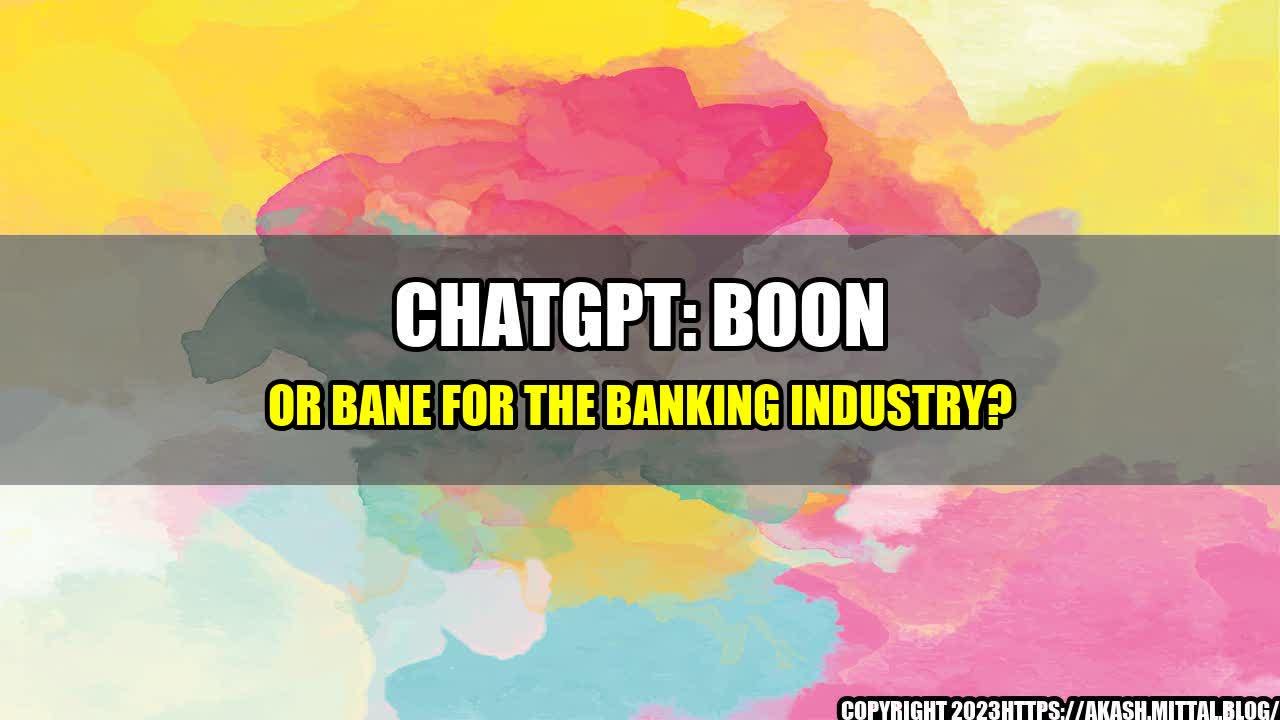


As a banker, I spend most of my day dealing with financial transactions, and I always thought that banking was all about numbers and calculations. One day, while I was taking a break, I stumbled upon a Chatbot called ChatGPT. I had heard about Chatbots before, but I had never actually used one.
Intrigued, I started chatting with ChatGPT, and I was surprised by how helpful it was. Not only did it answer all my banking queries accurately, but it also provided me with valuable financial advice, which I never would have considered otherwise.
After this experience, I realised that ChatGPT has the potential to transform the banking industry tremendously.
Chatbots like ChatGPT have become increasingly popular in the banking industry, thanks to their ability to provide 24/7 customer service and support. However, there are concerns that programmes like ChatGPT may eventually replace human bank employees.
To determine whether ChatGPT is a boon or a bane for the banking industry, let us examine some key impact areas:
One of the most significant advantages of using Chatbots such as ChatGPT in the banking industry is their ability to provide fast and accurate responses to customer queries. This saves time for both the bank and the customer and ultimately results in a more efficient banking experience.
For instance, according to a report by Juniper Research, the use of Chatbots can help banks save up to $8 billion annually by 2022.
Chatbots are cost-effective, and they can provide customer support services at a significantly lower cost than human employees. A study conducted by Salesforce found that 64% of businesses using Chatbots can reduce costs by more than 20%.
Moreover, the use of Chatbots also frees up human employees to focus on more complex tasks, thus increasing productivity levels.
Despite all the advantages of Chatbots, they have one significant shortcoming – their lack of emotionally intelligent personalisation. Human employees can offer an empathetic ear, listen actively to customer concerns, and provide a personalised touch that Chatbots are not yet capable of.
However, advancements in Artificial Intelligence (AI) tech may soon enhance Chatbots' personalisation capabilities, making them even more efficient in the future.
Let me share a personal experience that highlights the efficiency of Chatbots in the banking industry. Recently, I was unable to locate my credit card statement and was worried about my credit score being affected. I decided to chat with my bank's Chatbot and immediately received a response with the required information. This reduced my anxiety levels and gave me peace of mind.
Another example to consider is Bank of America's Chatbot called Erica. Erica has become increasingly popular among customers and can help customers with various banking-related tasks, including paying bills, transferring money, and account management. According to Bank of America, the use of Erica has led to a 20% reduction in customer service calls.
For banks looking to implement Chatbots and AI in their operations, here are some practical tips to consider:
Trending keywords: Chatbots, AI, Banking Industry, Efficiency, Cost Reduction, Personalisation.
SEO keywords: Banking Industry, Chatbots, AI, Personalisation, Customer Support, Efficiency.
Article category: Banking, Technology, AI, Chatbots, Customer Support, Personalisation.
Curated by Team Akash.Mittal.Blog
Share on Twitter Share on LinkedIn